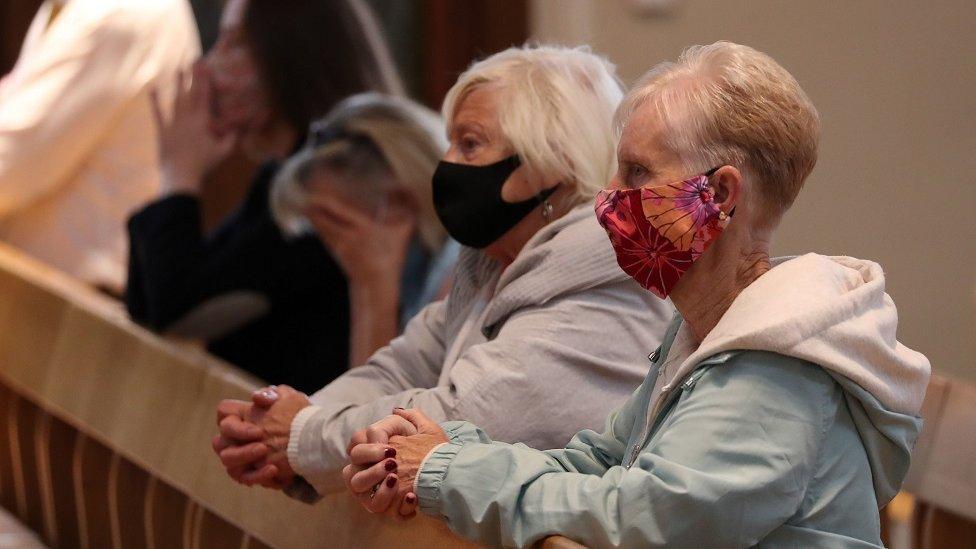Lockdown services revive appeal of the church in Scotland
- Published
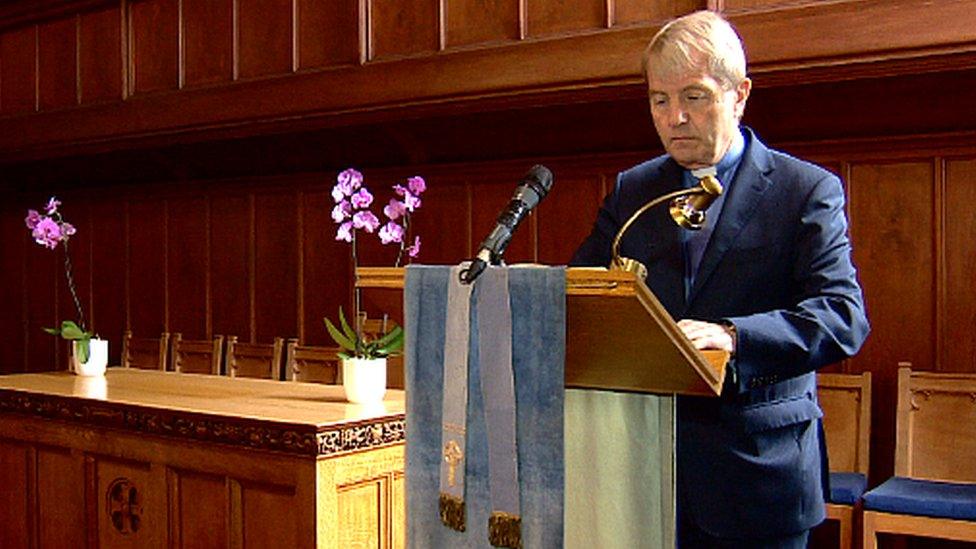
The Very Rev Dr Russell Barr said online services had attracted new people during lockdown
The Covid-19 pandemic may have had a positive effect on religion in Scotland, according to senior church figures.
Moving services online after the country was asked to stay at home may have boosted the appeal of the church.
According to a former Church of Scotland moderator, lockdown has helped churches "imagine things differently".
The Very Rev Dr Russell Barr said online services had attracted new people to the fold.
'Time to reflect'
Most religious groups in Scotland said they lost money as a result of lockdown but with places of worship now able to open for communal services, albeit with limited numbers, some of Scotland's faiths are taking time to reflect on the other legacies of lockdown.
"It was actually quite emotional to be back into the building and having people together again," said the Very Rev Dr Barr, who is minister at Cramond Kirk in Edinburgh.
He said church buildings were social, as well as spiritual, places.
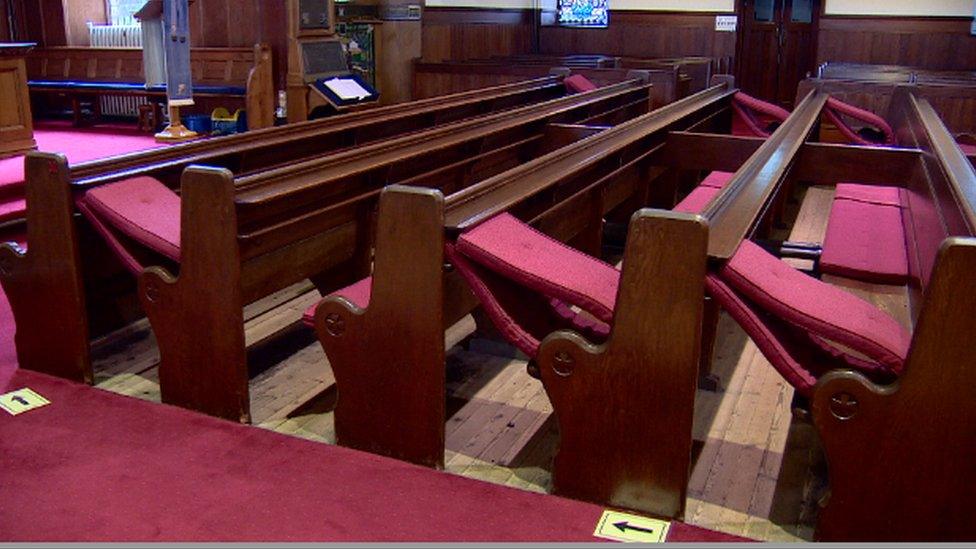
Blocked off pews form social distancing measures in Cramond Kirk
Like others, the building has been adapted. As well as limits on numbers there is hand sanitiser in place, blocked off pews and signs reminding people to keep their distance.
There are other differences too. For the first time during lockdown the Very Rev Dr Barr took his ministry online. The range of offerings attracted larger numbers and some people who never came to church. He says there is some wider thinking in the Kirk about buildings and the future.
'Too many buildings'
"I think the lockdown has really brought it to a head, but has also helped us imagine things differently," he said.
"Although our buildings are important, much of it has to do with tradition rather than what's actually meaningful and helpful for people today, so yes, we have too many buildings, we do need to reduce but now we've found a way of not being quite so tied to our buildings as we once were."
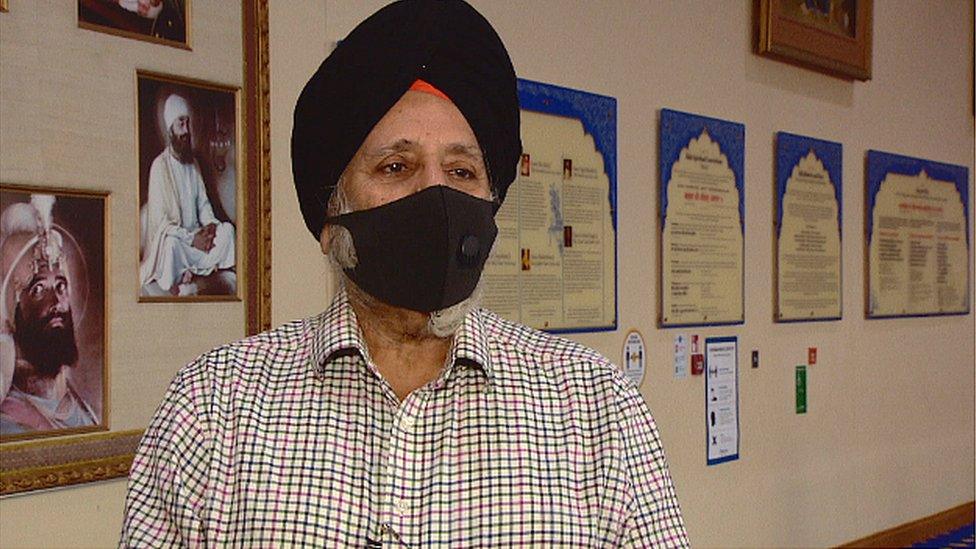
Surjit Singh Choudhary said the Central Gurdwara in Glasgow was used in different ways during the lockdown
Elsewhere, the Central Gurdwara in Glasgow has not done so much online. Even now numbers attending are below what they could be.
"They're very worried in case the virus starts again," says Surjit Singh Choudhary.
While the building was closed during lockdown, like many others, it was used to make food for different community groups.
'Lockdown legacy'
"Rather than having people come to us we are more than happy to go out and I think that's something that will continue," says Paman Singh, who is a legal advisor to the management committee at the Gurdwara.
He points to a further lockdown legacy too, in the way they look after the community's older people: "They are the backbone of the community and we've really learned that we need to cherish them and take care of them," he said.
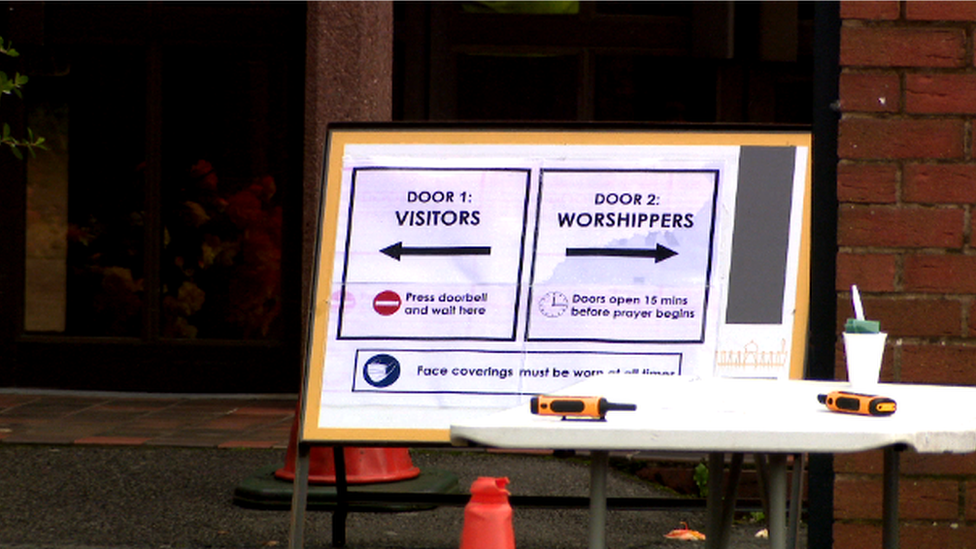
Signs instructing worshippers to social distance within Glasgow's Central Mosque
For Eid, prayers at Glasgow's Central Mosque had to be offered several times to allow at least a portion of those who wanted to, to attend. It was a chance to gather for an important festival again.
But while the building and the community it allows is still crucial, some say this very difficult period has been marked by new and creative thinking such as live streaming of sermons and lectures, online classes for young people and hotlines and services for the more vulnerable.
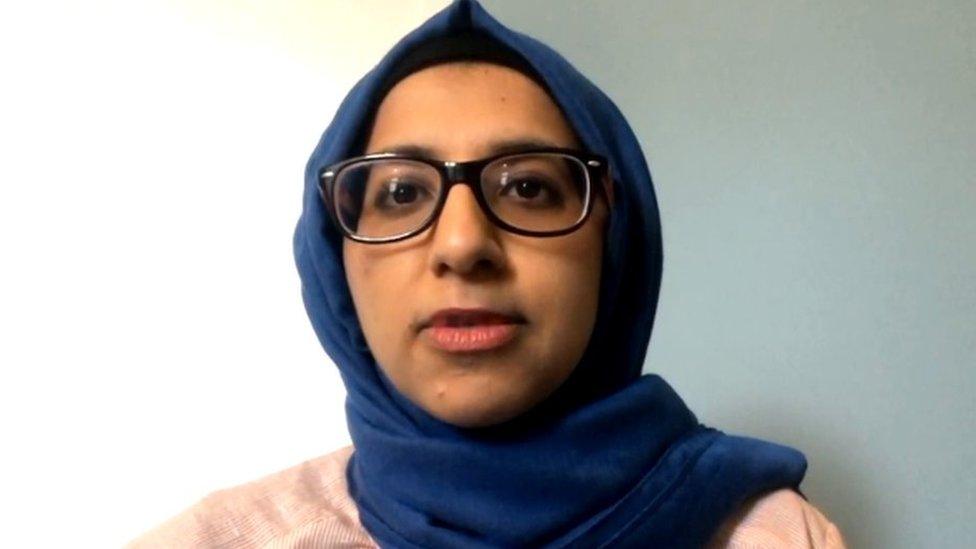
Zara Mohammed of the Muslim Council of Scotland said Glasgow's Central Mosque had to offer prayers on multiple occasions to allow more people to take part
"What we've seen is accessibility improve as well as connectivity which has been really good," says Zara Mohammed of the Muslim Council of Scotland.
"I guess that technological aspect to spirituality has been something quite new and welcome."
The Catholic church believes live streaming, which took off in lockdown, is likely to remain popular - at the moment many churches are operating a rota system to allow those who want to attend mass to do so.
- Published19 July 2020
